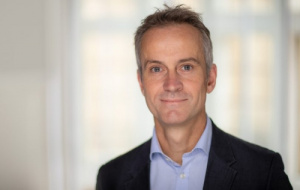 Speakers: Professor Gideon Henderson FRS is a Senior Research Fellow at University College and a Professor in the Department of Earth Sciences. Since 2019, he has spent 80% of his time as the Chief Scientific Advisory and Director General for Science and Analysis at the UK Government Department, Defra (Department for Environment, Food and Rural Affairs). He is a geochemist with expertise in the operation of Earth’s chemical systems, including the carbon cycle. His research has considered natural carbon cycling, and the potential and risks of intentionally altering these natural cycles. He led the Royal Society report on greenhouse gas removal published in 2018 and has been extensively involved in national and international work on the subject.
Speakers: Professor Gideon Henderson FRS is a Senior Research Fellow at University College and a Professor in the Department of Earth Sciences. Since 2019, he has spent 80% of his time as the Chief Scientific Advisory and Director General for Science and Analysis at the UK Government Department, Defra (Department for Environment, Food and Rural Affairs). He is a geochemist with expertise in the operation of Earth’s chemical systems, including the carbon cycle. His research has considered natural carbon cycling, and the potential and risks of intentionally altering these natural cycles. He led the Royal Society report on greenhouse gas removal published in 2018 and has been extensively involved in national and international work on the subject.
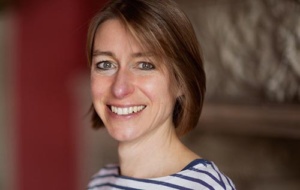 Professor Rosalind Rickaby FRS is a Professorial Fellow of University College as well as Chair and Professor of Geology at Oxford Earth Sciences. She leads the Oxford OceanBug research group, based in the Earth Sciences department researching biogeochemistry. Their research spans from developing inventive ways to reconstruct oceans of the past, to understanding the adaptation of organisms to changing ocean chemistry in the modern perturbed world. Professor Rickaby has authored over 100 papers and co-authored a book Evolution’s Destiny: Co-evolving chemistry of the environment and life. She was named a Fellow of the Royal Society in 2022 for her work on the interactions between life and the composition of Earth’s oceans and atmosphere.
Professor Rosalind Rickaby FRS is a Professorial Fellow of University College as well as Chair and Professor of Geology at Oxford Earth Sciences. She leads the Oxford OceanBug research group, based in the Earth Sciences department researching biogeochemistry. Their research spans from developing inventive ways to reconstruct oceans of the past, to understanding the adaptation of organisms to changing ocean chemistry in the modern perturbed world. Professor Rickaby has authored over 100 papers and co-authored a book Evolution’s Destiny: Co-evolving chemistry of the environment and life. She was named a Fellow of the Royal Society in 2022 for her work on the interactions between life and the composition of Earth’s oceans and atmosphere.
Synopsis: Earth’s climate is regulated by natural processes and feedback that operate on geological timescales. Can we harness these processes to help mitigate human-induced climate change?
There is international agreement that we must rapidly cut greenhouse gas emissions and reach net zero emissions by mid-century to avoid catastrophic climate change. Since the time of the Paris Agreement, it’s also been recognised that to achieve net zero we need to actively remove some greenhouse gases from the atmosphere. We will need to develop ways to do this effectively, safely, and affordably. Can we accelerate the natural processes that already remove carbon dioxide?
In this presentation, Professors Henderson and Rickaby will share some of the findings from research they have done in Oxford, and discuss the wider thinking on greenhouse gas removal learned from their engagement in national and international organisations. They will consider how we can move beyond growing trees, to possible approaches such as accelerated rock weathering, altering ocean chemistry, or enhancing life in the oceans. The lecture will seek to summarise the potential and risks of natural approaches to greenhouse gas removal.
 On Saturday, 23 September Univ took part in Meeting Minds Oxford, a programme of lectures, tasting sessions, tours, and more for University of Oxford alumni. Univ held four sessions covering everything from climate change to our Oscar Wilde collection, presented both in person and online via Zoom for those unable to attend.
On Saturday, 23 September Univ took part in Meeting Minds Oxford, a programme of lectures, tasting sessions, tours, and more for University of Oxford alumni. Univ held four sessions covering everything from climate change to our Oscar Wilde collection, presented both in person and online via Zoom for those unable to attend.
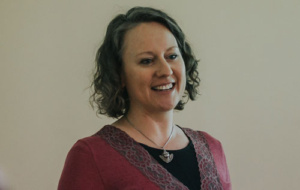 Speaker: Elizabeth Adams, Librarian, University College, Oxford. As Librarian, Elizabeth is responsible for the Robert Ross Memorial Collection of Wilde material. With a background in Early Printed Books, her research has expanded to publications from the 19th and early 20th century. Outside the Library, Elizabeth teaches and practises the craft of letterpress printing.
Speaker: Elizabeth Adams, Librarian, University College, Oxford. As Librarian, Elizabeth is responsible for the Robert Ross Memorial Collection of Wilde material. With a background in Early Printed Books, her research has expanded to publications from the 19th and early 20th century. Outside the Library, Elizabeth teaches and practises the craft of letterpress printing.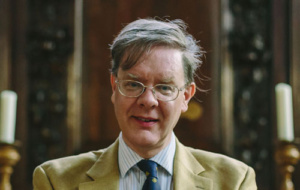 Speaker: Dr Robin Darwall-Smith (1982, Classics) Archivist at University College, Oxford and Jesus College, Oxford. Robin has published extensively on the history of Oxford, and has been involved in writing the histories of four Colleges. He was recently appointed Editor of History of Universities.
Speaker: Dr Robin Darwall-Smith (1982, Classics) Archivist at University College, Oxford and Jesus College, Oxford. Robin has published extensively on the history of Oxford, and has been involved in writing the histories of four Colleges. He was recently appointed Editor of History of Universities.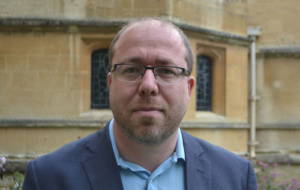 Speaker: Professor Joe Moshenska, Beaverbrook and Bouverie Tutorial Fellow in English Literature at University College, Oxford and Professor of English and Comparative Literature at Oxford. He was educated at Cambridge and Princeton and is the author of four books, most recently Making Darkness Light: The Lives and Times of John Milton.
Speaker: Professor Joe Moshenska, Beaverbrook and Bouverie Tutorial Fellow in English Literature at University College, Oxford and Professor of English and Comparative Literature at Oxford. He was educated at Cambridge and Princeton and is the author of four books, most recently Making Darkness Light: The Lives and Times of John Milton. Speakers: Professor Gideon Henderson FRS is a Senior Research Fellow at University College and a Professor in the Department of Earth Sciences. Since 2019, he has spent 80% of his time as the Chief Scientific Advisory and Director General for Science and Analysis at the UK Government Department, Defra (Department for Environment, Food and Rural Affairs). He is a geochemist with expertise in the operation of Earth’s chemical systems, including the carbon cycle. His research has considered natural carbon cycling, and the potential and risks of intentionally altering these natural cycles. He led the
Speakers: Professor Gideon Henderson FRS is a Senior Research Fellow at University College and a Professor in the Department of Earth Sciences. Since 2019, he has spent 80% of his time as the Chief Scientific Advisory and Director General for Science and Analysis at the UK Government Department, Defra (Department for Environment, Food and Rural Affairs). He is a geochemist with expertise in the operation of Earth’s chemical systems, including the carbon cycle. His research has considered natural carbon cycling, and the potential and risks of intentionally altering these natural cycles. He led the  Professor Rosalind Rickaby FRS is a Professorial Fellow of University College as well as Chair and Professor of Geology at Oxford Earth Sciences. She leads the Oxford OceanBug research group, based in the Earth Sciences department researching biogeochemistry. Their research spans from developing inventive ways to reconstruct oceans of the past, to understanding the adaptation of organisms to changing ocean chemistry in the modern perturbed world. Professor Rickaby has authored over 100 papers and co-authored a book Evolution’s Destiny: Co-evolving chemistry of the environment and life. She was named a Fellow of the Royal Society in 2022 for her work on the interactions between life and the composition of Earth’s oceans and atmosphere.
Professor Rosalind Rickaby FRS is a Professorial Fellow of University College as well as Chair and Professor of Geology at Oxford Earth Sciences. She leads the Oxford OceanBug research group, based in the Earth Sciences department researching biogeochemistry. Their research spans from developing inventive ways to reconstruct oceans of the past, to understanding the adaptation of organisms to changing ocean chemistry in the modern perturbed world. Professor Rickaby has authored over 100 papers and co-authored a book Evolution’s Destiny: Co-evolving chemistry of the environment and life. She was named a Fellow of the Royal Society in 2022 for her work on the interactions between life and the composition of Earth’s oceans and atmosphere.